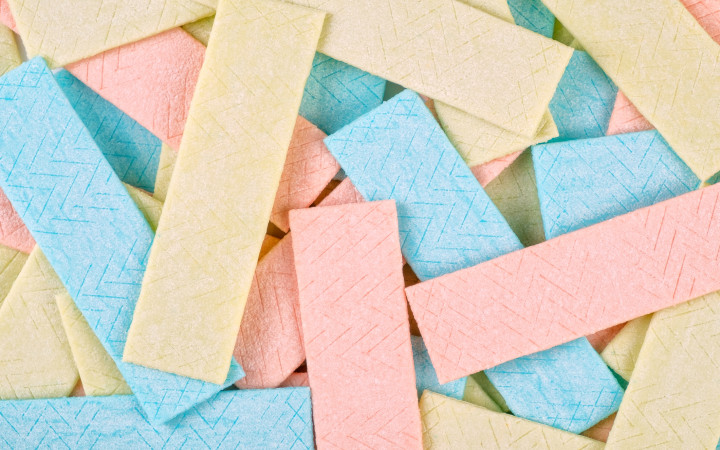Today’s Wonder of the Day was inspired by Tyler. Tyler Wonders, “What would happen if I swallow gum?” Thanks for WONDERing with us, Tyler!
Ah, chewing gum. We all love you. You're so sweet and chewy. We even love to blow bubbles with you. But every now and then we accidentally — gulp! — swallow you. Oh no! Is there anything to worry about?
Some of you may have heard an old wives' tale that goes something like this: If you swallow gum, it will stay in your digestive system for seven years. Wow! That's a long time, but is there any truth to it?
Nope! When you swallow gum, your digestive system (which includes parts of your body, like your stomach, small intestine and large intestine) treats the gum like any other food. Some of the parts of gum, such as sweeteners, softeners and flavorings, are broken down by the digestive juices in your stomach. Any nutrients your body can use are saved and the rest is pushed on through your digestive system.
There is one part of gum that can't be digested, though. It's the gum base or resin. Gum base consists of chemicals developed by scientists to make gum chewy. These chemicals resist digestion, but they don't sit around in your stomach for seven years.
Instead, your body recognizes that it can't digest the gum base and simply moves it along in the digestive process until it is eventually eliminated from your body. Doctors estimate it would usually take about two days to digest and eliminate any gum you may swallow.
Although swallowing gum is usually harmless, it's not a good practice to swallow your gum regularly. Doctors point out that swallowing a large amount of gum at once or swallowing many smaller pieces in a short time span could lead — in rare cases — to problems in the digestive system.
So enjoy your chewing gum, but spit it out in the trash when you're finished with it. Doctors also recommend you stick to sugar-free gums, so that you won't put your teeth in jeopardy of developing cavities.




